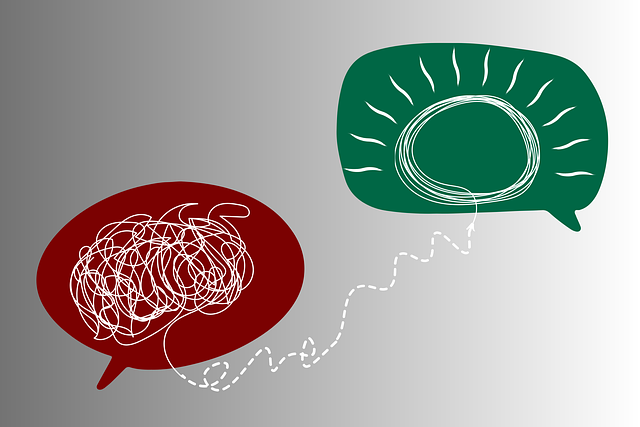Interpersonal Psychotherapy (IPT) is a structured talk therapy focused on improving mental health by addressing interpersonal issues, particularly relationship problems like conflict or lack of social support that contribute to depression. IPT enhances communication skills, resolves relationship difficulties, and promotes better emotional regulation through exploring unhealthy interaction patterns. By gaining insights into their roles in relationships, patients experience healthier interactions and improved overall mental well-being. As an evidence-based approach to mental health psychotherapy, IPT aims to reduce depressive symptoms and boost mental health.
Interpersonal psychotherapy (IPT) offers a tailored approach to treating depression by focusing on an individual’s relationships and social environment. This article delves into the core principles, techniques, and unique benefits of IPT, setting it apart from other therapy methods. We explore how the therapist-client relationship plays a pivotal role in its success, and present real-life applications and inspiring success stories within the realm of mental health psychotherapy.
Understanding Interpersonal Psychotherapy (IPT) for Depression: A Brief Overview

Interpersonal Psychotherapy (IPT) is a form of talk therapy designed to help individuals understand and manage their relationships, focusing on how interpersonal issues contribute to depression. It’s a structured approach that identifies and addresses specific problems in personal relationships, such as conflict, lack of social support, or difficult interactions with family and friends. IPT emphasizes the connection between a person’s thoughts, feelings, and behaviors within their social context.
This therapy aims to enhance communication skills, resolve relationship difficulties, and improve an individual’s overall mental health. By exploring these interpersonal dynamics, IPT helps patients gain insights into their roles in relationships and how these roles might be affecting their mood and behavior. It encourages individuals to develop healthier ways of interacting with others, fostering better emotional regulation and a stronger support system, ultimately contributing to improved mental well-being.
The Core Principles and Techniques of IPT

Interpersonal Psychotherapy (IPT) is a highly effective form of mental health psychotherapy that focuses on addressing relationship issues and improving social functioning as key components in treating depression. The core principles of IPT emphasize the impact of significant personal relationships on an individual’s emotional well-being, particularly those experiencing depressive episodes. This therapeutic approach assumes that problems in interpersonal interactions contribute to, or exacerbate, symptoms of depression.
The techniques employed in IPT involve helping individuals identify and change unhealthy relationship patterns and improving their ability to express emotions effectively. Therapists work with clients to explore and modify negative thoughts and behaviors within relationships, fostering better communication and more supportive social networks. By targeting these interpersonal factors, IPT aims to reduce symptoms of depression and promote overall mental health.
How IPT Differentiates Itself from Other Therapy Approaches

Interpersonal psychotherapy (IPT) stands out among various therapy approaches for treating depression by focusing on the individual’s relationships and social environment. Unlike some broader cognitive-behavioral therapies that target thoughts and behaviors in isolation, IPT recognizes that our interactions with others play a significant role in shaping our emotional well-being. It emphasizes the exploration of interpersonal issues such as conflicts, loneliness, and social isolation, which are often contributing factors to depressive symptoms.
While other mental health psychotherapy approaches may touch upon these aspects, IPT delves deeper into how these relationships impact an individual’s sense of self and their emotional regulation. By identifying and modifying problematic patterns in interactions, IPT aims to enhance the patient’s ability to navigate social situations more effectively, improve communication skills, and develop healthier relationships. This targeted approach makes IPT a distinctive and valuable option for those seeking treatment for depression.
Benefits and Effectiveness of IPT in Treating Depression

Interpersonal Psychotherapy (IPT) is a highly effective approach for treating depression, focusing on improving relationships and social functioning. This form of mental health psychotherapy helps individuals identify and change unhealthy patterns in their interactions with others, which can significantly reduce symptoms of depression over time. IPT emphasizes the impact that interpersonal issues and conflicts have on one’s emotional well-being.
One of the key benefits of IPT is its ability to empower individuals to take control of their lives by improving communication skills and fostering healthier relationships. By learning to navigate interpersonal challenges, individuals can enhance their support systems and reduce feelings of isolation. Research has shown that IPT leads to long-lasting improvements in mental health, with many studies demonstrating its effectiveness as a standalone treatment or in conjunction with other interventions for depression.
The Role of the Therapist and Client Relationship in IPT

In Interpersonal Psychotherapy (IPT), the therapeutic relationship between the therapist and client is a cornerstone of treatment. IPT emphasizes the profound impact that relationships have on mental health, particularly in cases of depression. The therapist acts as a collaborative partner, helping individuals navigate their interpersonal challenges and identify unhealthy patterns in their interactions with others. Through open dialogue, the therapist facilitates self-reflection, enabling clients to gain deeper insights into their emotional experiences and behaviors within relationships.
This unique bond allows for a safe space where clients can explore sensitive topics and express themselves freely. The therapist’s role is not merely to offer advice but to support the client in discovering their own solutions by exploring underlying beliefs and issues that contribute to their depression. By fostering trust, empathy, and a sense of understanding, the therapeutic relationship becomes a powerful tool in the process of healing and recovery.
Real-life Applications and Success Stories: IPT in Action

Interpersonal psychotherapy (IPT) has proven to be a powerful tool in addressing depression in various real-life settings. This therapeutic approach focuses on improving relationships and social functioning, which are often at the heart of depressive episodes. IPT helps individuals identify and change unhelpful patterns in their interactions with others, fostering better communication and emotional support.
Success stories from mental health clinics highlight the effectiveness of IPT. Many clients have reported significant improvements in their mood and overall well-being after engaging in this form of psychotherapy. By targeting interpersonal issues, IPT enables people to build stronger relationships, enhance their social networks, and develop coping strategies that are both effective and sustainable in the long term.
